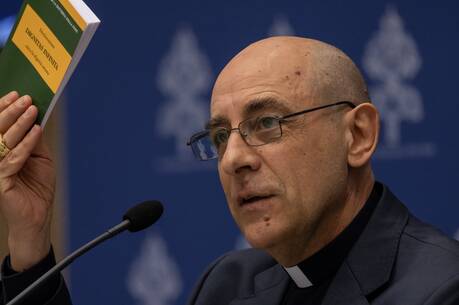One of the most important titles used to describe Jesus is 'King'. Given that Jesus and the people of the Gospels come from the culture of the Old Testament, it is no surprise that, when they wish to express their deepest hopes and desires, they think of the greatest benefactor of their history - the Kings of Israel. Such, however, was the history of the kings that only two were identified by Old Testament prophets as 'good'. But it is important to realize what 'good' and 'bad' included in these descriptions of royalty. It is not simply a question of personal good or evil. It is not too much to say that as the king went, so went the welfare of the people. It was the power and wisdom and holiness of the king that assured the supreme benefits of every Israelite; without such a king, the people were doomed. Given the terrible exiles of Assyria and Babylon, Israel was reduced to ashes; the blame lay heavily on the kingship and particulary in the disobedience of the kings. From those ashes rose the conviction that exile and death were punishment for Israel, not abandonment by God. And so arose the longing for a king who would be so good and powerful and wise that he would assure Israel of the wonderful benefits of living with God. Given the performance of Jesus in his ministry, many were sure or inclined to believe that he was that King. God had finally sent a King who would assure happiness in the fullest degree. It was under the guidance of the Spirit that Jewish Christians took a final step and saw that Jesus, risen from the dead, was the King of all nations. It is his birthday we celebrate very soon. It was God's move to send a King, and He did!
-----------------------------
Mary's Magnificat is a hymn which essentially is a praise of God and a reflection of Mary on her place in Jewish history. Mary knows whom she carries, and so her first reaction is to 'make much' of God, to 'proclaim His holy name. She is aware of what God has done for her; in this she is a model for every Christian who should take the time to realize what 'God has done for me'. Mary's reflection on her blessedness, which moves her to praise God, reminds her, however, that, if God has blessed her in her lowliness, how often has He already done that for His chosen, covenanted people. They have not merited this blessedness, but only received it from their Loved One. As she briefly, poetically runs through the history of God's interventions on behalf of people who had no hope, she finally realizes that this entire history of goodness from God was promised to the very first Father of Israel, to him and all his offspring. Thus, her Magnificat has moved from a personal reflection and recognition to that reality that Mary is the latest, albeit, most important divine beneficiary of the constant, unending love of God for His people. Can we see our past as Mary has seen hers, and then proclaim, with the birth of Jesus, how much God has done for His servants and handmaids?
John Kilgallen, SJ







